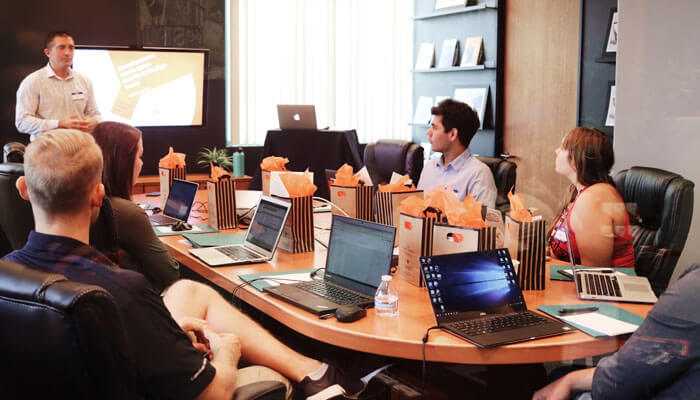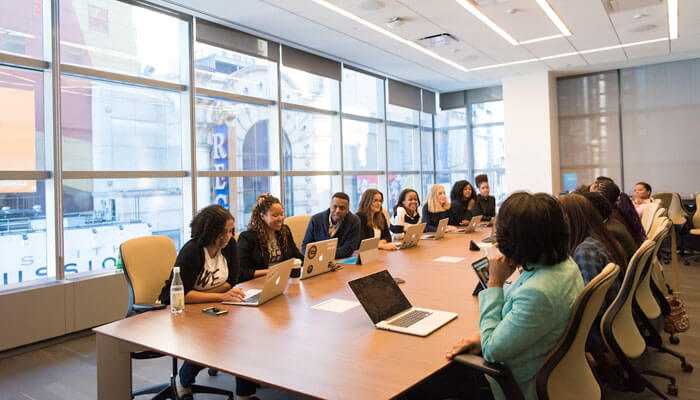In recent years, strategies based on gamification techniques have become more and more central in various fields, transforming a trendy concept into a very powerful tool for driving business success. As we already observed when we talked about gamification trends, in fact, this approach now finds space in many areas, from marketing to social media. But equally interesting is what happens in team dynamics: when applied to corporate teams, gamification has the potential to increase engagement, motivation, and ultimately, productivity. So, how can gamification in corporate teams improve the team’s results?
The main answer lies in its ability to create a highly engaging environment that motivates employees to reach their full potential, fosters collaboration, and aligns individual achievements with the company’s goals.
How Does Gamification in Corporate Teams Work?
At the heart of gamification in corporate teams is the idea of using game mechanics—such as rewards, progress tracking, challenges, and competition—to transform everyday tasks into engaging and motivating activities. This concept draws inspiration from various gaming environments, including online casinos, where players are always involved in exciting challenges with other enthusiasts. In the same way that players in an online casino strive to reach new levels testing his skills, employees can be driven to achieve goals by tracking progress and receiving real-time rewards, creating a sense of achievement and healthy competition within the workplace.
The Power of Motivation in Gamification for Corporate Teams
Gamification in corporate teams is effective because it taps into fundamental human instincts, such as competition, achievement, and recognition. These core elements, when incorporated into the workplace, can transform mundane tasks into exciting challenges and foster a more dynamic and enjoyable environment. By introducing game-like systems into daily operations, companies can increase participation and create a more motivated workforce.
One of the key benefits of gamification is its ability to enhance motivation. The instant feedback loop provided by gamified systems helps employees stay engaged with tasks, whether it’s through real-time progress tracking, earning rewards, or receiving recognition for completing specific milestones. This immediate feedback can be a powerful motivator, as employees can see tangible results for their efforts. Additionally, gamified systems encourage continuous improvement by rewarding employees as they advance in their work, thus creating a positive reinforcement cycle.
Fostering Better Collaboration through Gamification in Corporate Teams
Beyond motivation, gamification also fosters better collaboration. Many gamified systems are designed around team-based activities, which encourage employees to work together to complete challenges or meet collective goals. This not only boosts individual engagement but also strengthens teamwork and enhances communication across departments. By working together to reach common objectives, employees build stronger relationships and a more cohesive team environment.
But another significant advantage of gamification is its ability to promote healthy competition. When implemented correctly, competition can drive employees to perform at their best, push boundaries, and continuously improve. Healthy competition encourages employees to learn new skills, innovate, and achieve personal and professional growth. It’s important anyway to maintain a balance, ensuring that competition remains friendly and supportive rather than becoming a source of stress or rivalry.
Applications of Gamification in Corporate Teams
The application of gamification in corporate teams is broad, and there are various ways to integrate game mechanics to boost team performance. In sales and marketing, for instance, gamified systems can incentivize employees to achieve sales targets or sign new clients. By incorporating leaderboards, rewards, and badges, employees are motivated to outperform their peers while contributing to the company’s bottom line.
Similarly, gamification can enhance onboarding and training processes, making them more engaging and effective. New hires can earn points or rewards as they complete training modules, gain knowledge, and familiarize themselves with company culture. This process not only makes onboarding more fun but also helps employees feel more connected to the company from the start.
Recognizing and Rewarding Employees
Employee recognition programs can benefit from gamification, too. By allowing employees to earn rewards and recognition for their achievements, companies can foster a sense of pride and accomplishment. Publicly recognizing top performers or allowing employees to nominate their peers for awards can create a more positive and motivating work environment.
In health and wellness initiatives, gamification can encourage employees to adopt healthier lifestyles. By turning fitness challenges or well-being goals into games, companies can incentivize employees to make positive lifestyle changes. Gamified health programs can track physical activity, reward employees for reaching milestones, and even encourage social interaction, creating a healthier and more engaged workforce.
Continuous Evaluation and Adaptation
It’s important to observe that, to ensure that gamification remains beneficial, companies must continuously evaluate and adjust their systems. Regular feedback from employees, as well as tracking key performance metrics, can help identify areas for improvement and ensure that the system continues to deliver value.
By integrating game-like elements into everyday work processes, anyway, companies can create a more dynamic and enjoyable environment while driving results. While challenges exist, the potential benefits of gamification far outweigh the risks, making it a key strategy for modern organizations looking to enhance team performance and foster a positive, collaborative culture. As businesses evolve, gamification will continue to play an important role in shaping the future of work.



